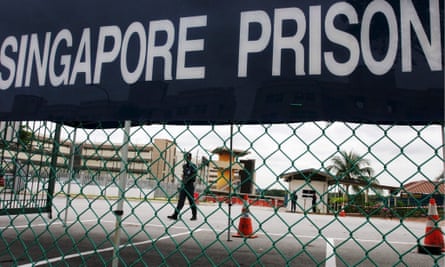Good morning.
The indictment against Donald Trump was yesterday expanded by federal prosecutors who unveiled new charges over an attempt to destroy surveillance footage, adding to the case he already faces over retaining national security documents and obstructing the government’s efforts to retrieve them.
The expanded indictment added a new section titled “The Attempt to Delete Security Camera Footage” that alleged in detail how Trump seemingly instructed an employee to wipe a server containing surveillance footage that prosecutors subpoenaed, which showed boxes of classified documents being removed from the storage room.
The former president faces more than three dozen charges in the case, including more than 30 violations of the Espionage Act. His trial is set for May 2024, at the end of the Republican presidential primary contest in which Trump is the frontrunner. He was already facing an additional count under the Espionage Act for retaining a classified document about US plans to attack Iran that he discussed on tape at his Bedminster club in New Jersey.
A Trump spokesperson said the latest charges were “nothing more than a continued desperate and flailing attempt” by the Biden administration “to harass president Trump and those around him”.
-
Just keep stumm. Trump asked his lawyer Evan Corcoran something to the effect of “What happens if we just don’t respond at all?” and “Wouldn’t it be better if we just told them we don’t have anything here?”, according to Corcoran’s notes that prosecutors obtained during the investigation.
US-Saudi talks amid reports of far-reaching diplomatic plan for Middle East

The US national security adviser, Jake Sullivan, has held talks with the Saudi crown prince, Mohammed bin Salman, in Jeddah, as part of a reported bid for a diplomatic breakthrough in the region “for a more peaceful, secure, prosperous and stable Middle East”.
There are suggestions that Sullivan went to Jeddah to “explore the possibility of some kind of US-Saudi-Israeli-Palestinian understanding” in which recognition of Israel would be exchanged and there be a halt to Jewish settlement building, and an Israeli promise never to annex the West Bank.
Bruce Riedel, a former CIA Middle East analyst and White House adviser, said the idea of such a multifaceted agreement was politically far-fetched. Getting the Senate to approve a security pact with Saudi Arabia would also be extremely difficult. Benjamin Netanyahu’s hard-rightwing Israeli government would not accept substantial gains for the Palestinians either.
Khaled Elgindy, a Palestinian expert at the Middle East Institute, said: “It’s like we’ve gone back to the days when the US, Israel and Arab states could decide the fate of Palestinians without any Palestinian involvement. This alone should disqualify it from being taken seriously – but of course it won’t.”
-
What could be achieved? A further winding down of the conflict in Yemen, and Saudi aid to the occupied territories in an effort to forestall a third intifada, a Palestinian uprising against the expansion of settlements and other measures from an extreme Israeli government.
Singapore executes a woman for first time in almost two decades




Singapore has hanged Saridewi Djamani, the first woman to be executed in the city state in almost 20 years, despite an outcry from human rights groups. The 45-year-old Singaporean national, who had been convicted of drug smuggling, was executed early today, according to the Central Narcotics Bureau (CNB).
Saridewi was sentenced to death in 2018 for trafficking about 30g (1.06 ounces) of heroin. She is believed to be the first woman to be executed in Singapore since 2004. Saridewi had argued that she had not been able to give accurate statements to the police because she had been suffering from drug withdrawal at the time.
The Global Commission on Drug Policy, as well as the International Federation for Human Rights and Amnesty International, had urged the Singaporean government to halt the execution.
Campaigners dispute that it is a uniquely effective deterrent and say the punishment is disproportionate and ends up targeting the most vulnerable and marginalised. They have also warned prisoners are increasingly representing themselves after their appeals because they cannot access lawyers.
-
Punishment doesn’t fit the crime. “Imposing the death penalty for drug-related offences is not only an exceptionally harsh and disproportionate punishment, but also violates international human rights law,” the Global Commission on Drug Policy said in a statement.
In other news …
-
At least 26 people have died and 40 have been rescued after a ferry capsized in the Philippines, officials have said, as the tail end of Typhoon Doksuri battered parts of the country. The boat’s outrigger reportedly broke when people rushed to one side of the wooden vessel amid high winds less than 50 metres from shore.
-
A Norwegian woman claims to have completed the fastest ascent of all of the world’s 14 highest mountains, completing the round in three months and one day – three months and five days faster than the previous record held by Nirmal “Nims” Purja.
-
UK Ministry of Defence officials unwittingly sent emails containing classified information to a close Russian ally because of a typing error. A “small number” of emails intended for the Pentagon were sent to Mali because of the accidental omission of an “i” from an email address.
Stat of the day: Air breathed in UK depends on race and income, studies show




An analysis published by the mayor of London has laid out the systematic air pollution differences between communities. Overall, people of black or mixed ethnicities are more likely to live in the most polluted places, writes Dr Gary Fuller, an air pollution scientist at Imperial College London. There is ample evidence that air pollution exposure can lead to pre-term and low birth-weight babies. Air pollution then hampers children’s lung growth, increases the chance of childhood asthma and worsens asthma symptoms.
Despite this, a survey by the NGO Global Black Maternal Health has shown a lack of awareness of air pollution risks among expectant black mothers, and those with young children. It also found a need for increased knowledge among the health professionals who care for them. The survey findings were announced at the Royal College of Obstetricians and Gynaecologists. It found many black mothers were aware of air pollution but less aware of risks that it posed. Some mothers would like to make lifestyle changes to reduce their air pollution exposure but felt they had few options.
Don’t miss this: Why are teenagers so obsessed with energy drinks?




A year and a half ago, two YouTubers and sports stars, Logan Paul and KSI, once rivals in the boxing ring, came together to fight a common enemy: Gatorade. They channeled their energies, and their combined 40 million social media followers, into a rival fruit-flavored sports drink they called Prime Hydration. Their young fans across the US and UK were captivated. The drink soon became a rare commodity and TikTok videos captured their epic quests to find it, sometimes at ridiculously marked-up prices.
In January 2023, a year after the debut of Prime Hydration, Paul and KSI expanded into the energy drink business. Prime Energy comes in most of the same super-sweet fruity flavors as Prime Hydration. But it contains 200mg of caffeine per serving, as much as a strong cup of coffee and more than Red Bull and Monster. As Aimee Levitt writes, it follows an inglorious history of energy and soft drink makers marketing their products towards children while skirting over the health risks. But once the cat is out of the bag it can be a catch-22. Moral panics also serve as an excellent marketing strategy for brands courting young people – the news provides plenty of free publicity and warning labels often make kids want to try something.
… or this: A Black prosecutor was elected in Georgia – so white Republicans made their own district




Since 1870, the Augusta judicial circuit has been home to the criminal justice system of a three-county area on Georgia’s border with South Carolina. In that time, no African American has been elected district attorney of the circuit – until 2020, when a Black lawyer named Jared Williams upset a conservative, pro-police candidate with a little more than 50% of the vote. But that historic win was short-lived. The day after, a lawyer and state lawmaker in the area proposed something unusual: that the circuit’s whitest county separate itself from the Augusta circuit, creating a new judicial circuit in Georgia for the first time in nearly 40 years.
The split caused the disfranchisement of the old circuit’s Black voters, the voting advocacy organization Black Voters Matter Fund contended in a lawsuit that was eventually dismissed by the state supreme court, writes Justin Glawe. Those voters had chosen Williams, who ran on a pledge to uphold criminal justice reforms such as not prosecuting low-level marijuana possession, a crime which disproportionately affects Black and minority communities. Voting advocates say the circuit split is an example of the type of minority rule that Republicans are accused of engaging in across the US.
Climate check: Plan to dismantle US climate policy for next Republican president




An alliance of rightwing groups has crafted an extensive presidential proposal to bolster the planet-heating oil and gas industry and hamstring the energy transition, it has emerged. Against a backdrop of record-breaking heat and floods this year, the $22m endeavor, Project 2025, was convened by the notorious rightwing, climate-denying thinktank the Heritage Foundation, which has ties to fossil fuel billionaire Charles Koch.
Called the Mandate for Leadership: the Conservative Promise, it is meant to guide the first 180 days of presidency for an incoming Republican president, writes Dharna Noor. Climate experts and advocates have criticized planning that would dismantle US climate policy. The guide’s chapter on the US Department of Energy proposes eliminating three agency offices that are crucial for the energy transition, and also calls to slash funding to the agency’s grid deployment office in an effort to stymie renewable energy deployment, E&E News reported this week.
Last Thing: ‘It’s exactly as they’d have done it in the 1910s’: how Barbenheimer is leading the anti-CGI backlash




For the past 12 months, Hollywood has been facing a serious case of CGI fatigue, with critics tearing into would-be blockbusters for their over-reliance on it. Heavy effects work in Ant-Man 3 “instead of endowing the inanimate with life, subtract it”, while Little Mermaid was “rendered lifeless” by CGI. The Netflix romcom You People, starring Jonah Hill, made headlines when it was revealed that the final kiss in the film was done with CGI and the actor Christian Bale didn’t mince words when he said working exclusively in front of green screens on Thor: Love & Thunder was “the definition of monotony”.
As if in response, writes Shaad d’Souza, 2023 has delivered a buffet of practical-effects-driven films to the multiplex. Greta Gerwig used techniques dating back to silent film and soundstage musicals to bring her fantastical, hot-pink vision of Barbieland to life, Christopher Nolan reconstructed Oppenheimer’s Trinity test using miniatures, and Christopher McQuarrie hoisted a train carriage 80ft into the air in order to film Mission: Impossible – Dead Reckoning Part One’s stomach-churning final stunt. Meanwhile, nuclear experts have reviewed Oppenheimer and say it is epic, intense and compelling – but not always accurate.
Sign up
First Thing is delivered to thousands of inboxes every weekday. If you’re not already signed up, subscribe now.
Get in touch
If you have any questions or comments about any of our newsletters please email newsletters@theguardian.com
This post was originally published on this site be sure to check out more of their content.






